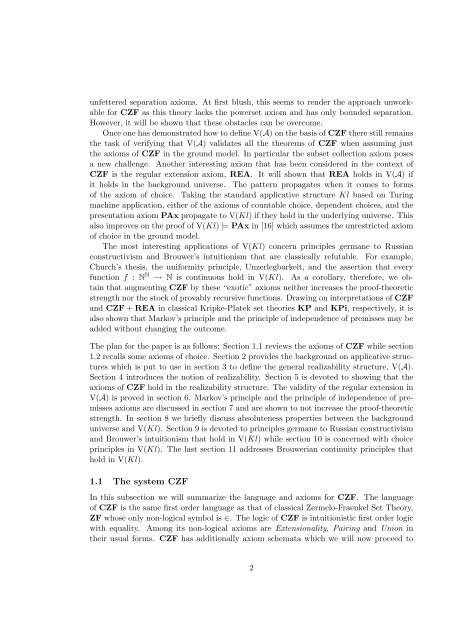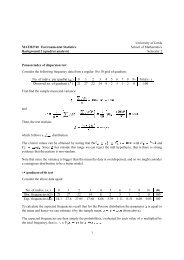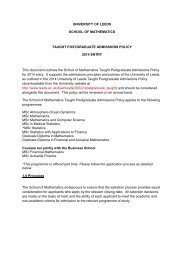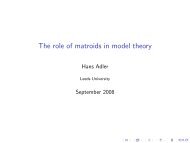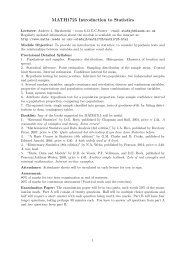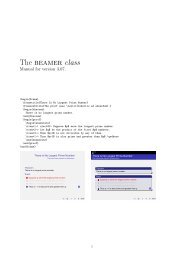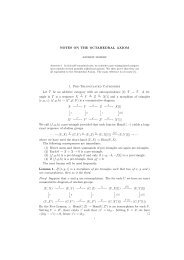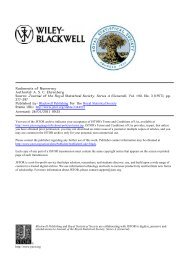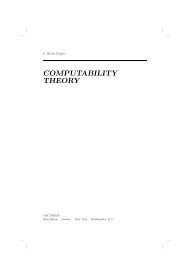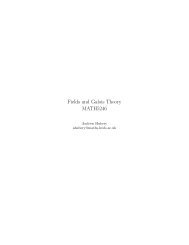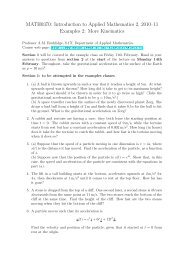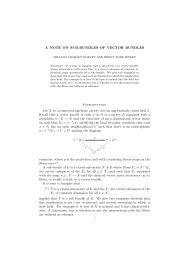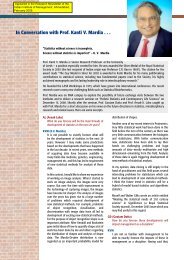Realizability for Constructive Zermelo-Fraenkel Set Theory
Realizability for Constructive Zermelo-Fraenkel Set Theory
Realizability for Constructive Zermelo-Fraenkel Set Theory
You also want an ePaper? Increase the reach of your titles
YUMPU automatically turns print PDFs into web optimized ePapers that Google loves.
unfettered separation axioms. At first blush, this seems to render the approach unworkable<strong>for</strong> CZF as this theory lacks the powerset axiom and has only bounded separation.However, it will be shown that these obstacles can be overcome.Once one has demonstrated how to define V(A) on the basis of CZF there still remainsthe task of verifying that V(A) validates all the theorems of CZF when assuming justthe axioms of CZF in the ground model. In particular the subset collection axiom posesa new challenge. Another interesting axiom that has been considered in the context ofCZF is the regular extension axiom, REA. It will shown that REA holds in V(A) ifit holds in the background universe. The pattern propagates when it comes to <strong>for</strong>msof the axiom of choice. Taking the standard applicative structure Kl based on Turingmachine application, either of the axioms of countable choice, dependent choices, and thepresentation axiom PAx propagate to V(Kl) if they hold in the underlying universe. Thisalso improves on the proof of V(Kl) |= PAx in [16] which assumes the unrestricted axiomof choice in the ground model.The most interesting applications of V(Kl) concern principles germane to Russianconstructivism and Brouwer’s intuitionism that are classically refutable. For example,Church’s thesis, the uni<strong>for</strong>mity principle, Unzerlegbarkeit, and the assertion that everyfunction f : N N → N is continuous hold in V(Kl). As a corollary, there<strong>for</strong>e, we obtainthat augmenting CZF by these “exotic” axioms neither increases the proof-theoreticstrength nor the stock of provably recursive functions. Drawing on interpretations of CZFand CZF + REA in classical Kripke-Platek set theories KP and KPi, respectively, it isalso shown that Markov’s principle and the principle of independence of premisses may beadded without changing the outcome.The plan <strong>for</strong> the paper is as follows: Section 1.1 reviews the axioms of CZF while section1.2 recalls some axioms of choice. Section 2 provides the background on applicative structureswhich is put to use in section 3 to define the general realizability structure, V(A).Section 4 introduces the notion of realizability. Section 5 is devoted to showing that theaxioms of CZF hold in the realizability structure. The validity of the regular extension inV(A) is proved in section 6. Markov’s principle and the principle of independence of premissesaxioms are discussed in section 7 and are shown to not increase the proof-theoreticstrength. In section 8 we briefly discuss absoluteness properties between the backgrounduniverse and V(Kl). Section 9 is devoted to principles germane to Russian constructivismand Brouwer’s intuitionism that hold in V(Kl) while section 10 is concerned with choiceprinciples in V(Kl). The last section 11 addresses Brouwerian continuity principles thathold in V(Kl).1.1 The system CZFIn this subsection we will summarize the language and axioms <strong>for</strong> CZF. The languageof CZF is the same first order language as that of classical <strong>Zermelo</strong>-<strong>Fraenkel</strong> <strong>Set</strong> <strong>Theory</strong>,ZF whose only non-logical symbol is ∈. The logic of CZF is intuitionistic first order logicwith equality. Among its non-logical axioms are Extensionality, Pairing and Union intheir usual <strong>for</strong>ms. CZF has additionally axiom schemata which we will now proceed to2


